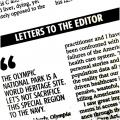
Last week I joined the North Watford Labour team up ladders, putting up poppies from the Royal British Legion in preparation for Remembrance Sunday. As we all know, the poppy is an enduring symbol of the sacrifices our Armed Forces have made for over 100 years. It is a global symbol which represents and affects more people than initially assumed.
Residents and passers-by were more than happy to share anecdotes with me as to why the poppy meant so much to them. It truly is astounding how we could relate to one another off the back of a symbol. My paternal Grandfather, Corporal Roy Watling, enlisted as an 18-year-old in 1945 at the end of the war. Once it was discovered he was fluent in both German and Russian, he was transferred from the Infantry to the Intelligence Corps in Vienna and was used as a translator in the repatriation of the Cossacks. The relevance of this small event? Before being deployed to Europe for two years, Corporal Watling decided to marry my Grandmother which ultimately led to me writing this article.
Whilst it is not easy to justify numerous other armed conflicts since, there can be no doubt that each and every member of society owes an eternal debt to those who fought in the Second World War. As a man of Jewish heritage, I know all too well how many the poppy represents. Lately the poppy has taken on a political stance for some, but we must remember why we wear them.
Nevertheless, the poppy is also a sombre memory of the horrors of war for not only the families of those who died, but for those who lived on. The Poppy Foundation assist with the mental wellbeing, future employment and housing of former soldiers reintegrating into society. So please, in the tough times this nation faces, please donate this year if you can. Much like the poppy representing and reflecting on more than you may know, it provides and benefits a lot more than you could know.
Dennis Watling
Callowland Resident & Watford Labour candidate



Comments: Our rules
We want our comments to be a lively and valuable part of our community - a place where readers can debate and engage with the most important local issues. The ability to comment on our stories is a privilege, not a right, however, and that privilege may be withdrawn if it is abused or misused.
Please report any comments that break our rules.
Read the rules here